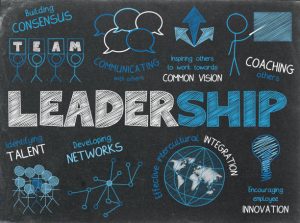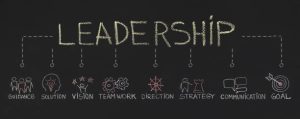Leadership Definition and Qualities

Leadership plays a crucial role in shaping societies, organisations, and individual lives. From historical figures to modern CEOs, leaders influence the direction, values, and success of the teams or communities they guide. In this article, we explore the leadership definition and qualities that make someone a true leader, examine different styles of leadership, and uncover what sets great leaders apart.
1. Leadership Definition: What It Really Means:
To begin with, let’s clarify what leadership actually is. Leadership is not merely holding a title or position of power. It is the ability to inspire, influence, and guide others toward a common goal. At its core, leadership is about creating a vision and motivating people to work together to achieve it.

When discussing leadership definition and qualities, we are referring to both the concept of leadership and the personal traits that make someone an effective leader. Leadership is not reserved for a select few; it can be developed and practiced by anyone willing to learn and grow.
2. Leadership Definition and Qualities: Key Traits of a Good Leader:
Now that we’ve defined leadership, it’s essential to explore the specific characteristics that distinguish great leaders from average ones. Here are some of the most important leadership qualities:
a. Visionary Thinking:
Great leaders have a clear vision for the future. They know where they are headed and can communicate that direction effectively to their team. A visionary leader inspires others by showing them the bigger picture and how their individual roles contribute to it.
b. Integrity:
Integrity is the foundation of trust. Leaders who act ethically and stick to their values earn the respect of their followers. They are consistent, honest, and transparent in their decisions and behaviour.
c. Communication Skills
Effective communication is essential for leadership. Great leaders are not just good speakers; they are also excellent listeners. They understand the importance of feedback, clarity, and empathy in conveying their ideas and building strong relationships.
d. Adaptability
In today’s fast-changing world, adaptability is key. Strong leaders embrace change, learn from failure, and remain flexible when facing unexpected challenges.
e. Decision-Making Ability
Leaders are often required to make difficult choices under pressure. The ability to analyse situations, weigh risks, and make confident decisions is a hallmark of a good leader.
All of these characteristics are vital parts of the broader conversation around leadership definition and qualities.
3. Different Styles of Leadership:
Leadership isn’t one-size-fits-all. Different situations require different approaches, and great leaders know how to adjust their style accordingly. Here are a few common leadership styles:

a. Transformational Leadership
This style focuses on inspiring and motivating followers to exceed their own expectations and capabilities. Transformational leaders often lead by example and are passionate about innovation and progress.
Servant leaders prioritise the needs of their team. They focus on developing others, fostering collaboration, and putting people first.
c. Authoritative Leadership
Authoritative leaders set clear goals and expect obedience. This style can be effective in high-stakes or emergency situations where quick decisions are needed.
d. Democratic Leadership
This style values input from all team members. Democratic leaders encourage participation, collaboration, and open communication.
4. Why Leadership Matters in Every Field:
Whether in business, politics, education, or social work, strong leadership is crucial. Leaders have the power to influence culture, boost productivity, and solve complex problems. In teams, effective leadership improves morale, aligns individuals with shared goals, and ensures smoother decision-making processes.

In schools, teachers with leadership skills can inspire lifelong learning. In corporations, leaders drive innovation and guide organisations through growth and transformation. In communities, leadership helps bring people together and foster social change.
Thus, the importance of leadership definition and qualities extends far beyond corporate boardrooms—it’s relevant in every walk of life.
5. How to Develop Leadership Qualities:
Leadership isn’t always innate. While some people may be born with natural charisma, anyone can develop leadership skills through experience, learning, and self-awareness. Here’s how to start:

a. Educate Yourself
Read books, attend workshops, and study the lives of great leaders. Learning from others’ experiences can provide valuable insights and inspiration.
b. Seek Feedback
Ask colleagues or mentors for honest feedback. Understanding your strengths and weaknesses helps you grow as a leader.
c. Take Initiative
Volunteer for leadership roles, even in small capacities. Leading a project, organising an event, or mentoring someone are all ways to practice leadership.
d. Reflect and Improve
After each leadership experience, reflect on what went well and what could be better. Self-reflection is a powerful tool for continuous improvement.

By consistently working on these areas, you can align yourself more closely with the ideals of leadership definition and qualities.
6. Conclusion:
Becoming the Leader the World Needs
Leadership is more than directing people—it’s about serving, inspiring, and creating positive change. True leadership requires a combination of vision, integrity, empathy, and resilience. By understanding the leadership definition and qualities, individuals can better equip themselves to lead with purpose and influence the world for the better.
Whether you’re a student, a professional, or simply someone looking to make a difference, remember that leadership is a journey. It starts with self-awareness, grows with experience, and flourishes through service to others. The future will always need leaders—leaders who not only understand the concept of leadership but who also embody its finest qualities.
